


ROBINSON CRUSOE ROBINSON CRUSOE TEACHER’S BOOK















































Retold by Brigit Viney





© 2016 – StandFor
Editorial Director
Editorial Manager
Editorial Coordinator
Series Editor
Editorial Assistant
Production Manager
Production Coordinator
Proofreader
Art Manager
Art Coordinator
Lauri Cericato
Cayube Galas
Ana Carolina Costa Lopes
Nick Bullard
Nathalia Thomaz
Mariana Milani
Marcelo Henrique Ferreira Fontes
Hannah Fish
Ricardo Borges
Daniela Di Creddo Máximo Design
Cover Design
Art Supervisor
Art Editors/Layout
Illustrations Coordinator
Illustrations
YAN Comunicação
YAN Comunicação
Patrícia De Michelis
YAN Comunicação, Lidiani Minoda
Márcia Berne
Amilcar Pinna
Operations Director and Reginaldo Soares Damasceno
Print Production Manager
Dados Internacionais de Catalogação na Publicação (CIP) (Câmara Brasileira do Livro, SP, Brasil)
Viney, Brigit
Robinson Crusoe : standfor graded readers, level 4 / Daniel Defoe ; retold by Brigit Viney ; illustrated Amilcar Pinna. -- São Paulo : FTD, 2016.
ISBN 978-85-96-00764-1 (aluno)
ISBN 978-85-96-00765-8 (professor)
1. Histórias em quadrinhos 2. Literatura infantojuvenil I. Defoe, Daniel, 1660-1731.
II. Pinna, Amilcar . III. Título.
16-07810
CDD-741.5
Índices para catálogo sistemático:
1. Histórias em quadrinhos 741.5
All rights reserved. No part of this publication may be reproduced, stored in a retrieval system, or transmitted, in any form or by any means, electronic, mechanical, photocopying, recording, or otherwise, without the prior written permission of StandFor. This book is sold subject to the condition that it shall not, by way of trade or otherwise, be lent, resold, hired out, or otherwise circulated without the publisher’s prior consent in any form of binding or cover than that in which it is published and without a similar condition being imposed on the subsequent purchaser.
Rua Rui Barbosa, 156 – Bela Vista – São Paulo-SP – Brasil – CEP 01326-010
Phone 0800 772 2300 – Caixa Postal 65149 – CEP 01390-970 www.standfor.com.br
Impresso no Parque Gráfico da Editora FTD
Avenida Antonio Bardella, 300 – Guarulhos-SP – CEP 07220-020
Tel. (11) 3545-8600 e Fax (11) 2412-5375
1 2 3 4 5 6 7 8 9
Daniel Defoe (1660–1731) was an English writer and journalist, best known as the author of Robinson Crusoe. Defoe was born in London, and started work as a merchant and trader when he was a young man. He traveled widely through England and Scotland and almost certainly to France, Spain, and Portugal. Robinson Crusoe was first published in 1719, and was an immediate success, although Defoe continued to have problems with money for the rest of his life. He wrote a second part of Robinson Crusoe in 1719, and a third part in 1720.
Nobody knows where Defoe got his idea for the story. He must have known a number of true stories about men who found themselves alone on a tropical island, but none of them had a story very similar to Crusoe’s. The story is a true work of fiction.
This book is about Robinson Crusoe’s adventures. Look at the front and back cover of the book and the biography of Daniel Defoe on page 3. Where did he have most of his adventures, do you think?
1. In a forest.
2. In a city.
3. On an island. ü
4. On a river.
When did he start his adventures, do you think?
1. In 1951.
2. In 1851.
3. In 1751.
4. In 1651. ü
Match the words with the pictures.
Why do people go on adventures? 4
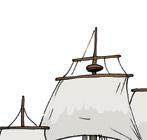

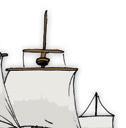










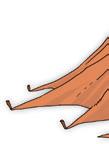
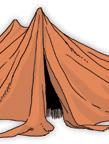



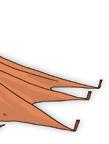

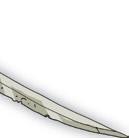





Personal answers.
1. storm 2. boat 3. shore 4. tent 5. sword


I was born in 1632 in the city of York, in the north of England. My father was a trader and we were quite rich.


I was the third son in the family and from a young age I wanted to travel. I talked to my father about this. He wasn’t happy about it.

Why do you want to leave home? You can be happy, comfortable, and rich here. You’ll be unhappy if you leave. I cannot agree to your plan.











I stayed at home until I was nineteen but did not work at anything. Then one day, while I was visiting the city of Hull, I met an old friend.
Thank you! I will!

I’m going to sail to London with my father in our ship. Will you come with us? It won’t cost you anything!
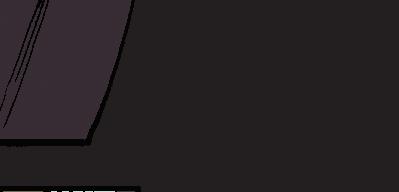





I did not tell my parents. I went on the ship and we sailed south. After some days there was a great storm. Water began to come into the ship and the ship began to go under the water. We were all very scared.

Luckily some sailors from another ship came to help us and we climbed down into their boat. They took us to the shore.
My friend returned home, but I went on to London. After some time, I wanted to go to sea again. I met a sea captain who often sailed to Africa.
I went to Africa with the captain, and on the voyage I learned to sail.
Come with me to Africa. You can make a lot of money if you have the right things to sell.
I made some money and soon I took another ship to Africa. But this time, I did not get far. Our ship was taken by Turks and they took us to Salé in Morocco.
I became the slave of a Turkish captain and worked in his house. I wanted to escape, but could not think how.
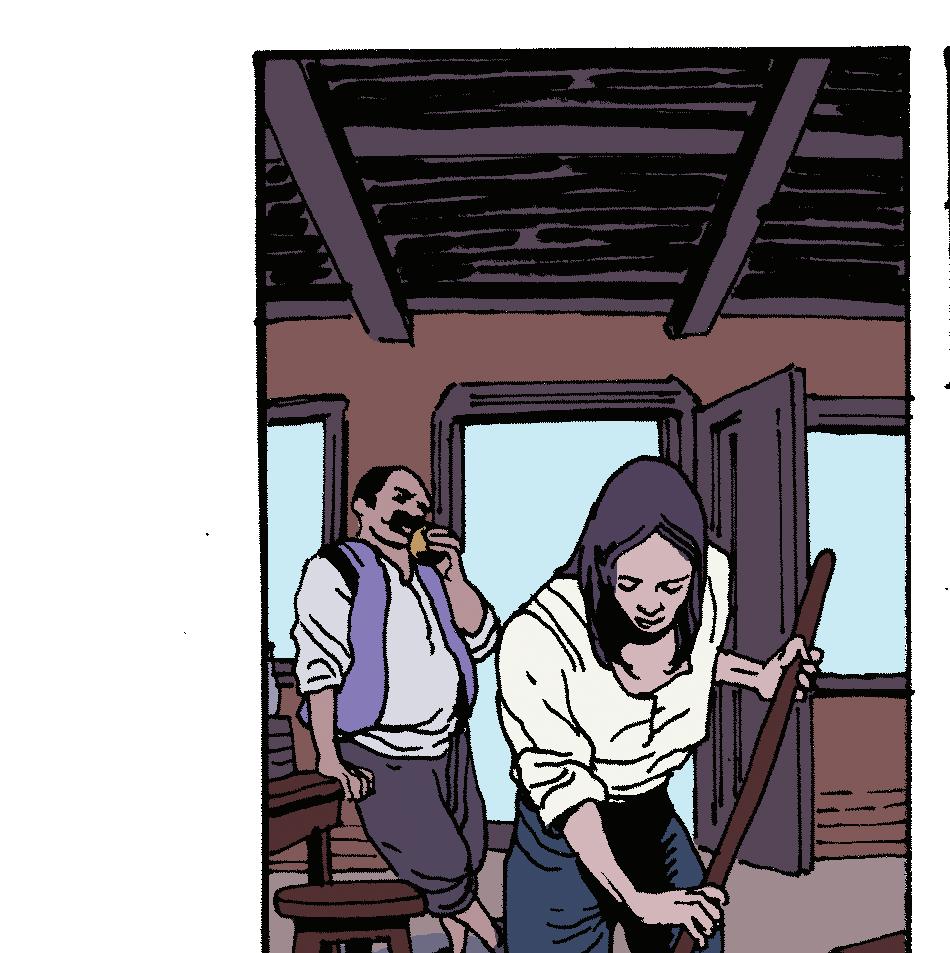
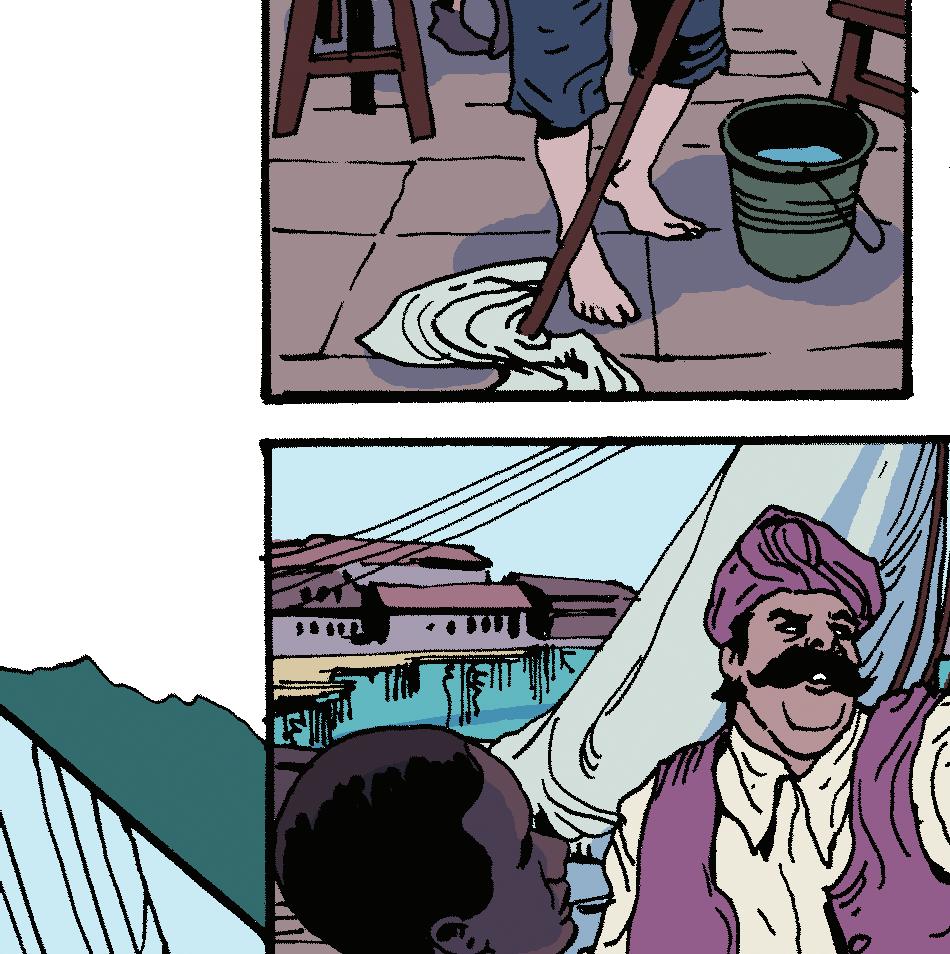
After this, I often used to go fishing with the captain. Xury, and a man, Muly, came with us. One morning the captain let us go without him.
One day, about two years after my capture, the captain took me and Xury, a young slave, out with him to fish.
You’ve caught a lot of fish! Well done!

Go with Muly and Xury and catch some fish. Bring it to the house this evening.


I quickly put food, water, and gunpowder on the boat. We left the town and stopped to fish. I came up behind Muly and suddenly took him by the arm and threw him into the ocean.
I’m going to have the boat without him! I can escape!

Take me with you!

Swim to the shore. It’s not far. If you come near the boat, I’ll shoot you.


Xury, if you aren’t true to me, I will throw you into the ocean, too.

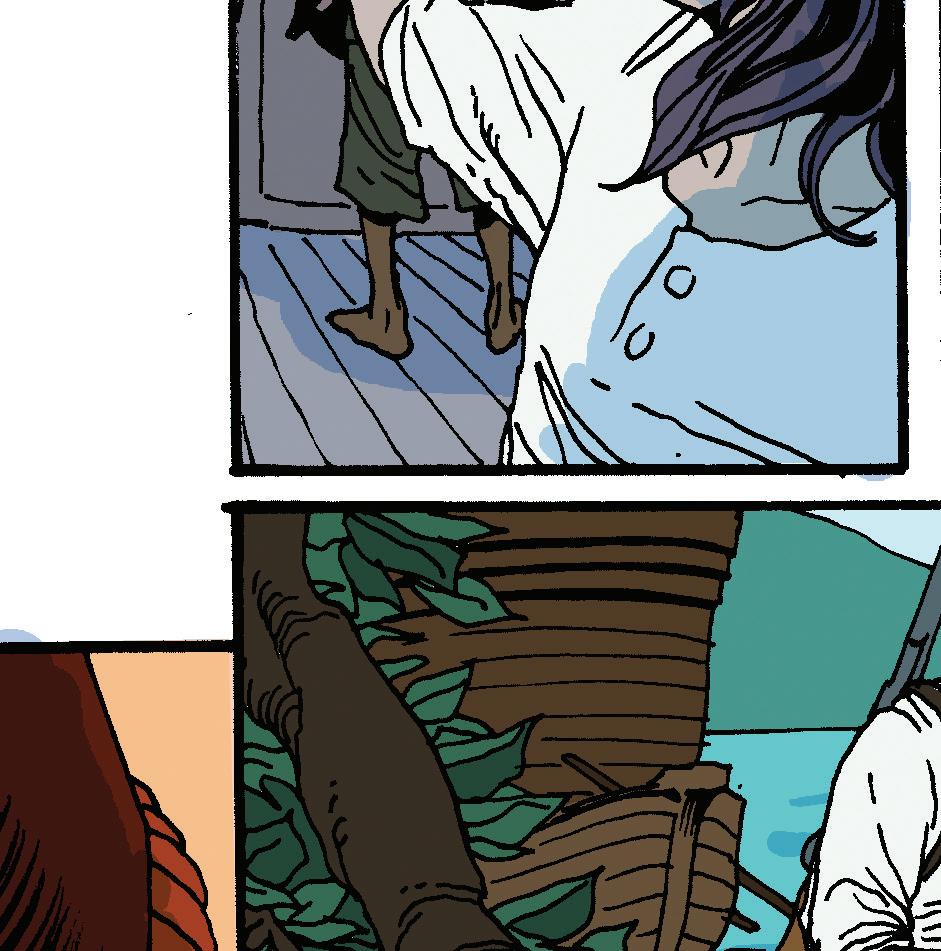
I will be true to you.

We sailed south for five days and we stayed close to the shore. Finally, we stopped near a small river.
We needed fresh water but it was dark, and we could hear many animals on shore and in the water.
Don’t go on shore now!
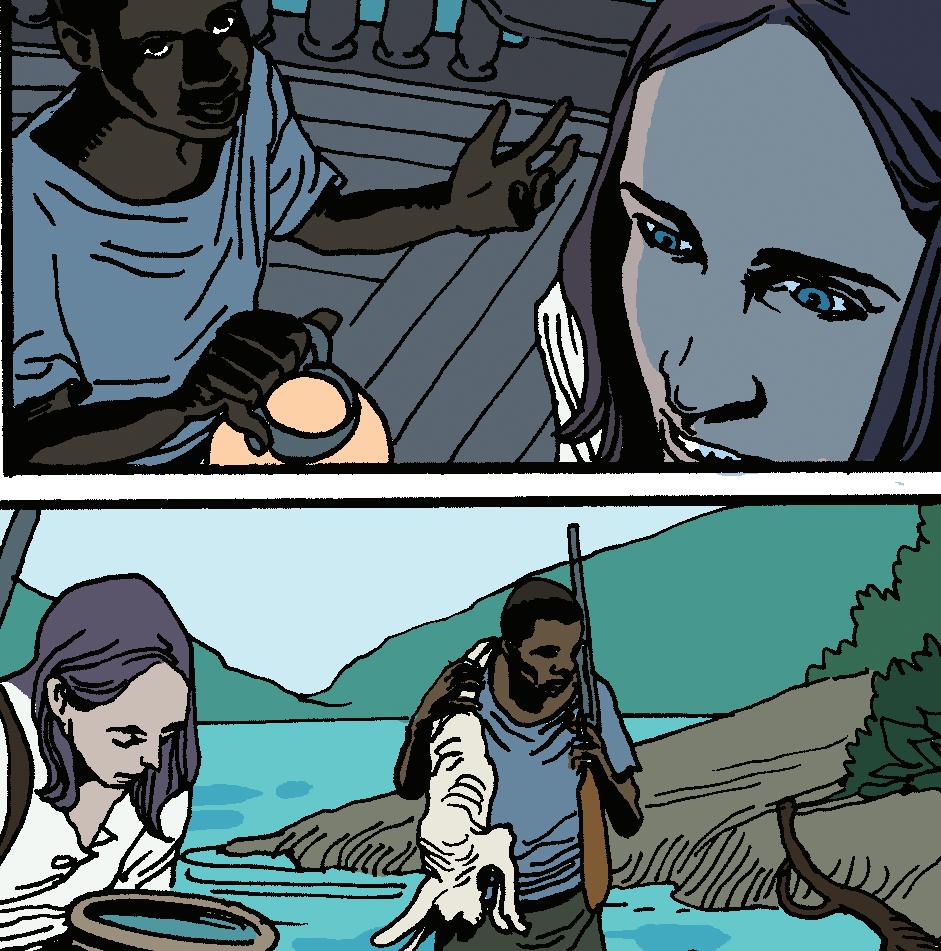

We continued on our way for many days. We often stopped to get water. I wanted to get to Cape Verde in Senegal because all the European ships stopped there.
I agree. Let’s wait until morning.
In the morning we went on shore. Xury shot an animal for food and we got water from the river.

We must meet a ship at Cape Verde or we’ll die.



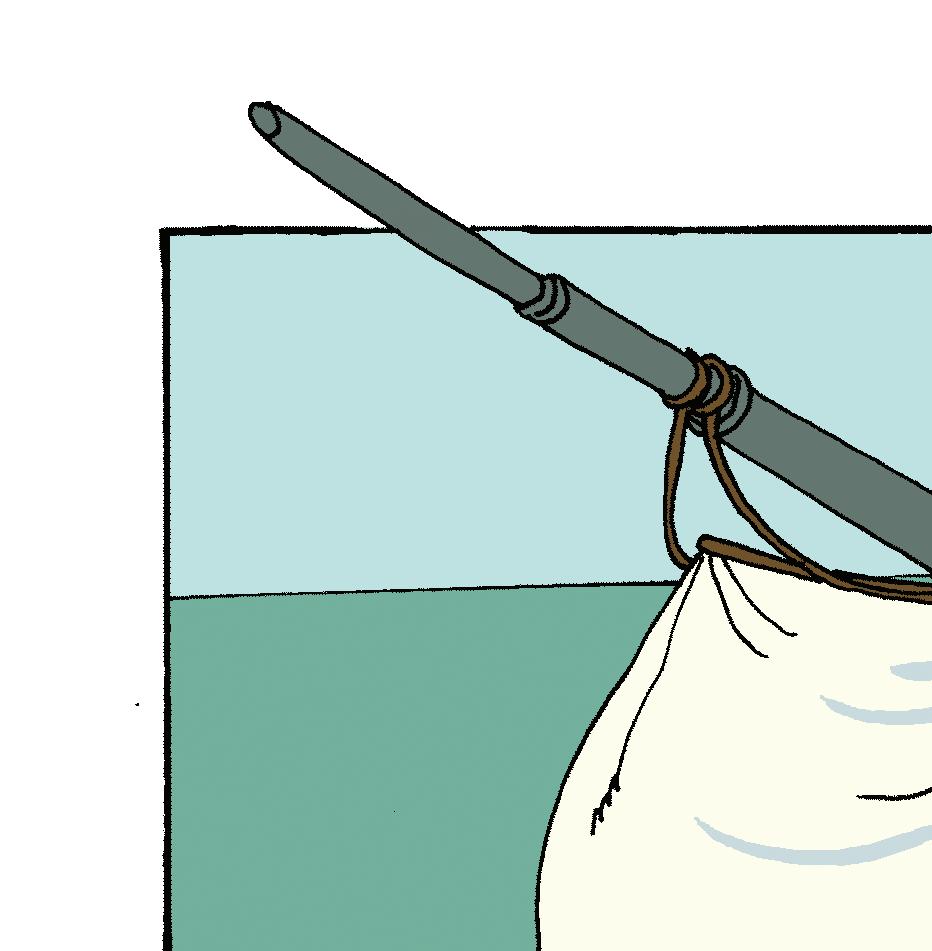
When we got to Cape Verde we saw a Portuguese ship. We sailed to it and I spoke to the sailors. Luckily, the captain spoke English.

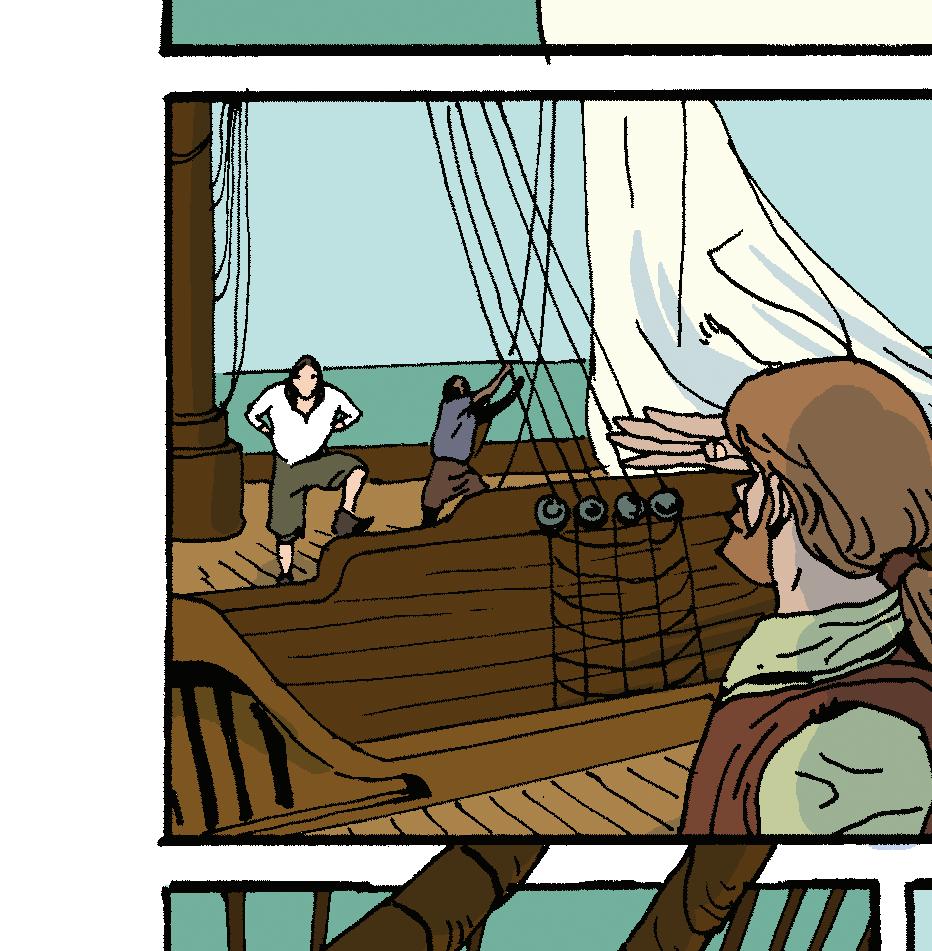
I’m an Englishman. I’ve escaped from Morocco. I was a slave there.
Come on our ship! We can take you to Brazil.
I’m sorry, I can’t sell Xury. He helped me to escape.
I’ll buy Xury from you.
Who are you?

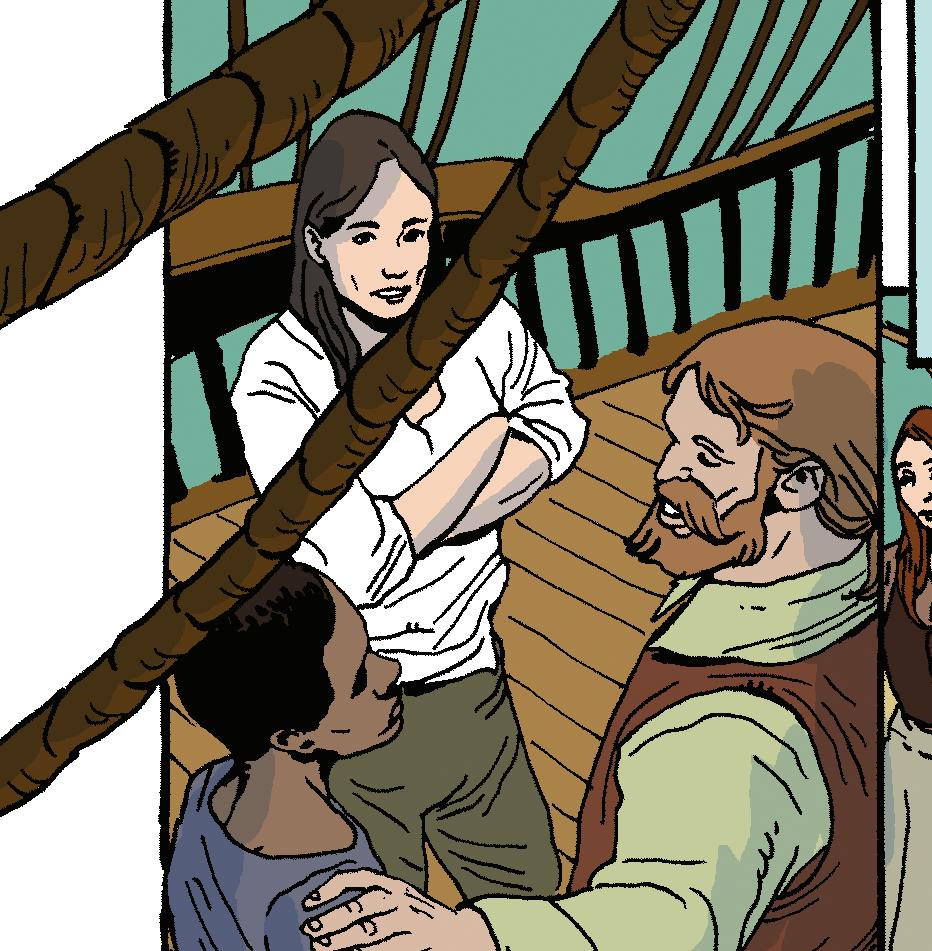
I’ll make him free after ten years, if he becomes a Christian.
Xury, will you stay with this captain?
Thank you, Captain! Take everything in my boat!
No, you’ll need it in Brazil. I won’t take anything.

We arrived in Todos-os-Santos Bay in Brazil after 22 days.

I’m free again. What am I going to do now?

Yes.


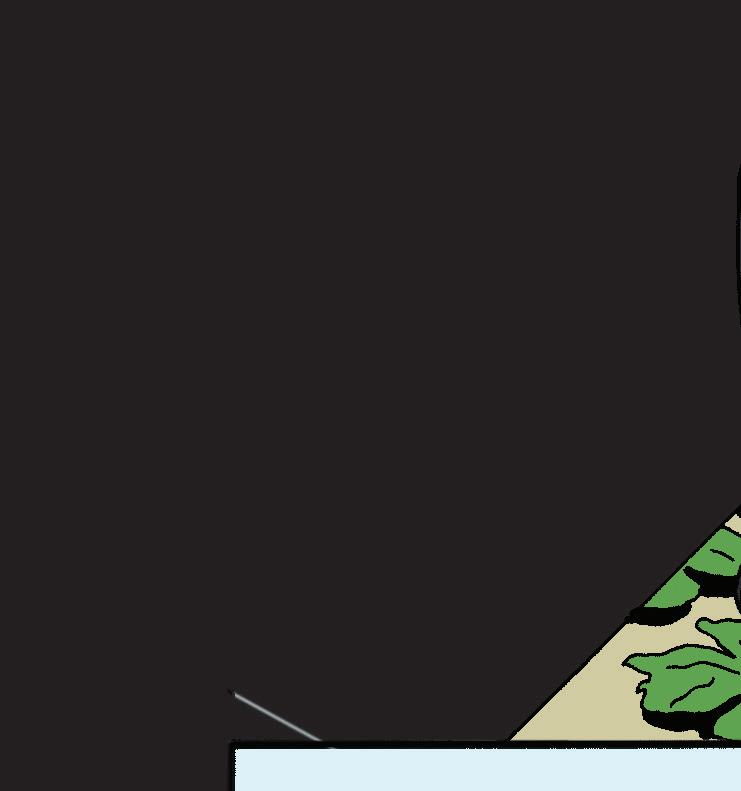
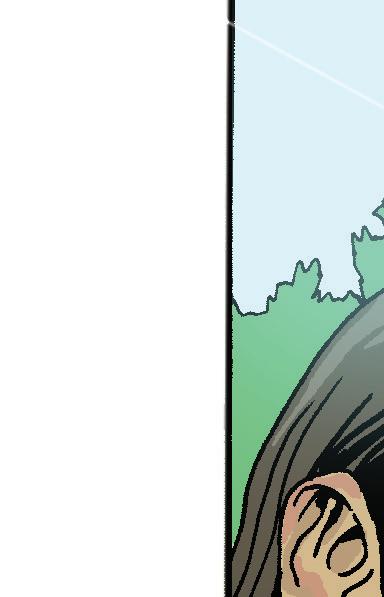
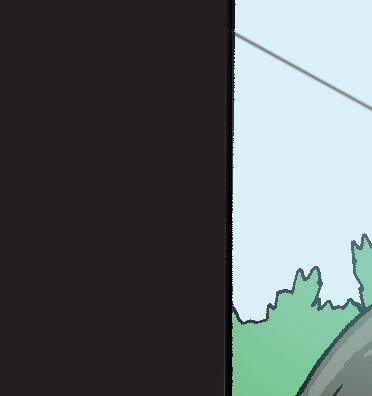





The Captain bought some things from me and with the money I bought some land in Brazil. My neighbor was a man called Wells. Together we grew food and then tobacco. We did well.



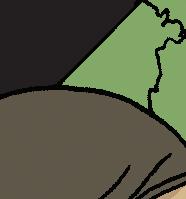











After four years in Brazil, I could speak Portuguese, I had friends, and I was rich. But I wanted a change.

My life here is like my father’s life in England! It’s too quiet. I want to travel again.

One day, Wells and some other neighbors came to ask for my help.
We need slaves to work on our farms. Will you take a ship to Africa and buy some for us?
Yes, I’ll go, if you look after my farm while I’m away.


Of course, we’ll do that for you.
In September 1659, we sailed away from Brazil. Soon after we left, we were hit by a very bad storm. It blew for 12 days and a boy fell off the ship and died.

When the storm ended, we decided to sail north-west to the island of Barbados and to repair the ship there. But then another storm hit us and drove us west. On September 30th we hit some sand.
Get the boat! The ship’s going to break into pieces!
We got into the boat and began to row. Then a mountain of water hit us. It threw us all into the sea. I swam as hard as I could.
Finally, I got to the shore. I sat on the sand.
Thank you, God, for saving me!
Then I began to think of what I needed. The most important thing was water, and I soon found some.
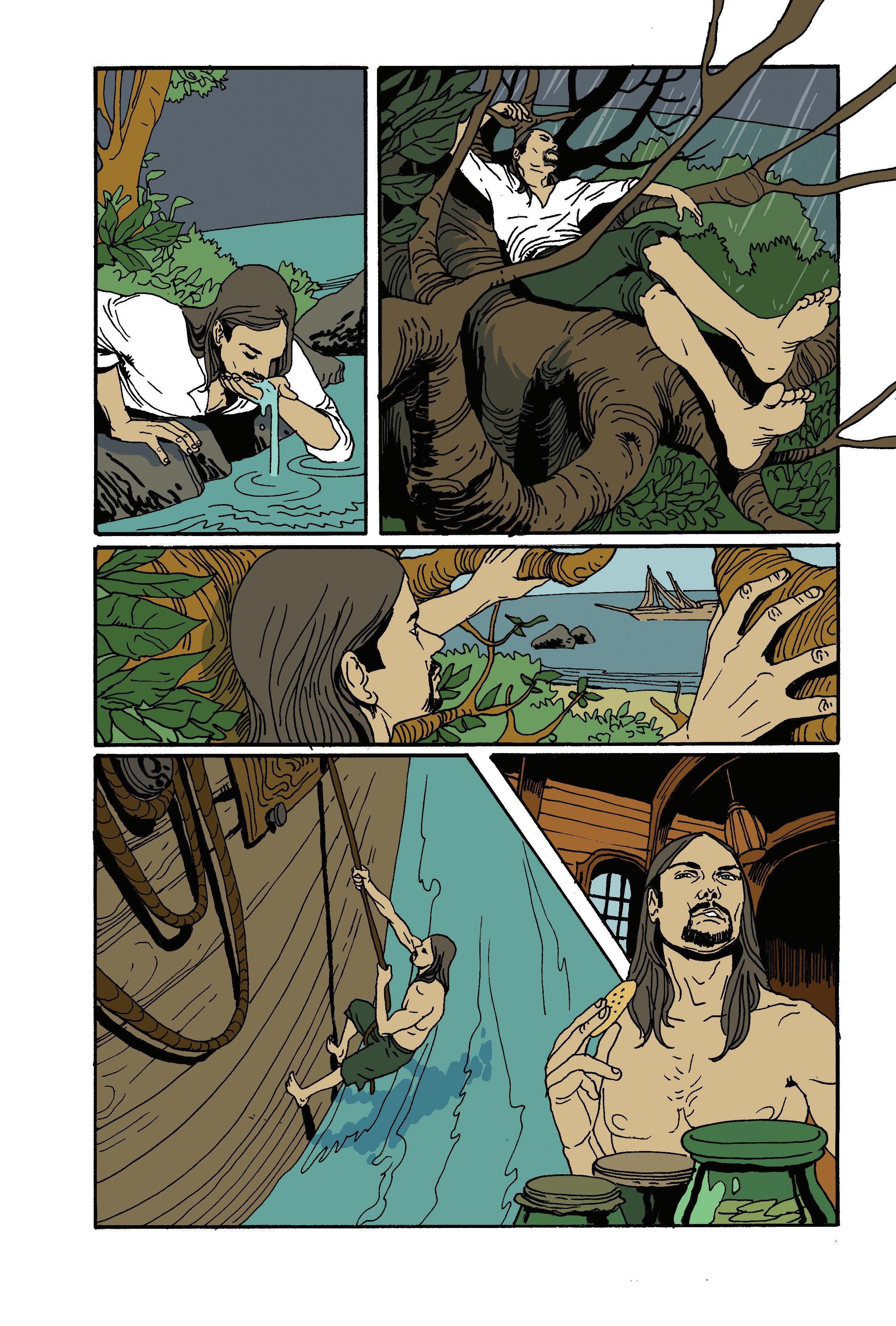
In the morning, it was still raining, but there was no wind. The ship was now nearer to me.
I swam out to the ship. I found a piece of rope at the front of the ship so I climbed up.
I was scared of wild animals so I decided to spend the night in a tree. It rained all night but I slept very well.
There was a lot of water inside the ship, but the food was dry, and I ate some biscuits. I found some rum and had some of that, too.
I decided to make a raft. I threw pieces of wood from the ship into the sea and then tied them together.
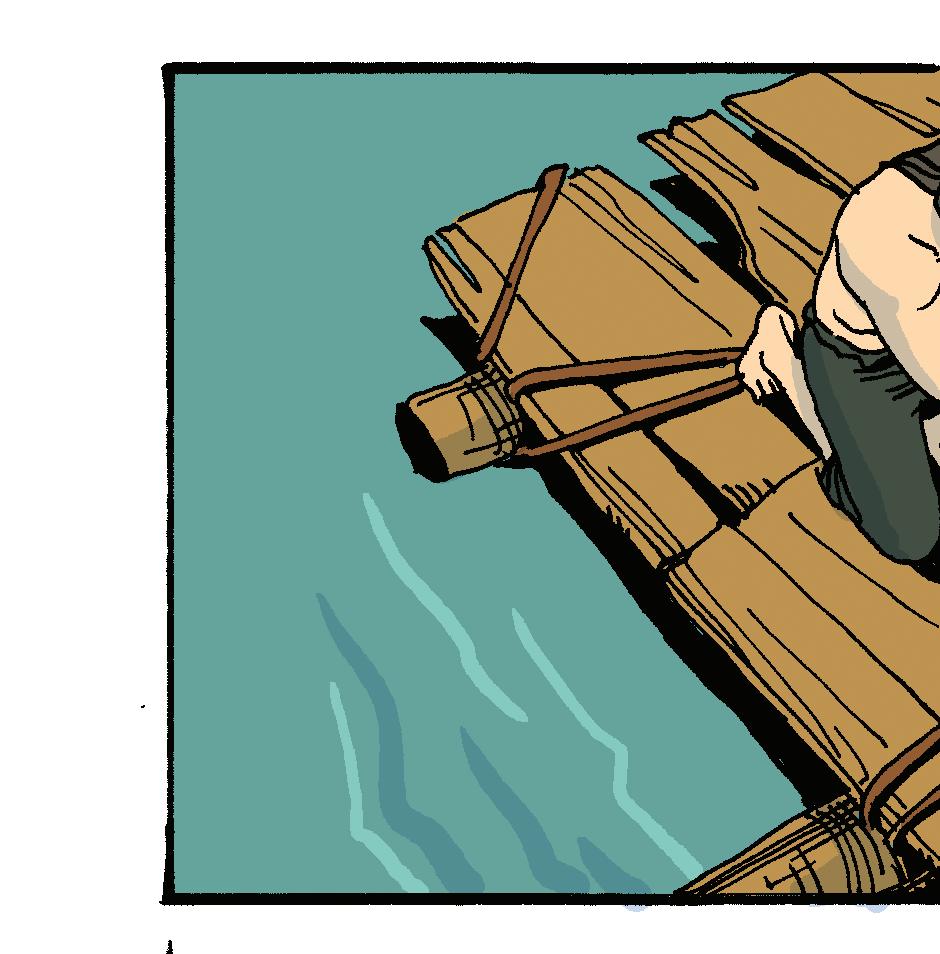
I put more pieces of wood, bottles of rum, and some large sailors’ boxes on the raft. I filled the boxes with bread, rice, cheese, dried meat, and a little corn.
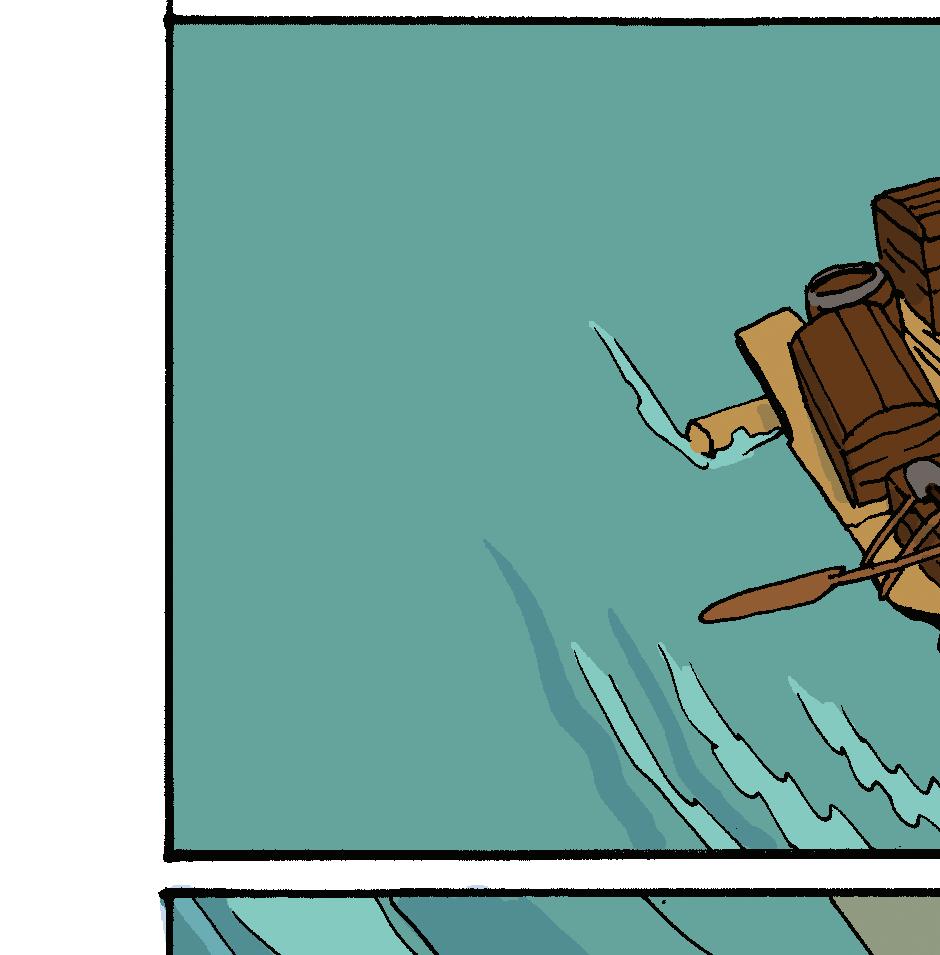
Then I began to go back to the shore. The ship’s dog swam with me. The raft moved very easily because the tide was going toward the shore. It took me to the mouth of a little river.

I took the raft up this river and near to the shore. I put an oar in the sand. This stopped the raft from moving away. Then I took everything off the raft.
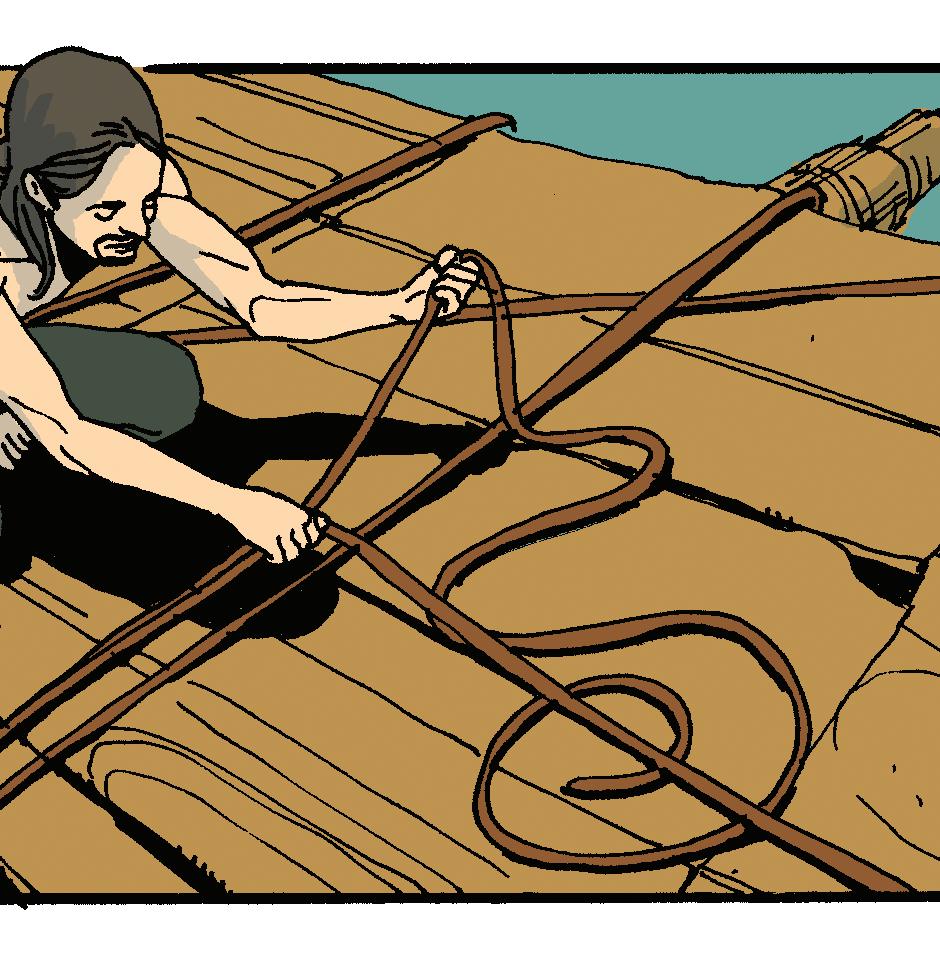
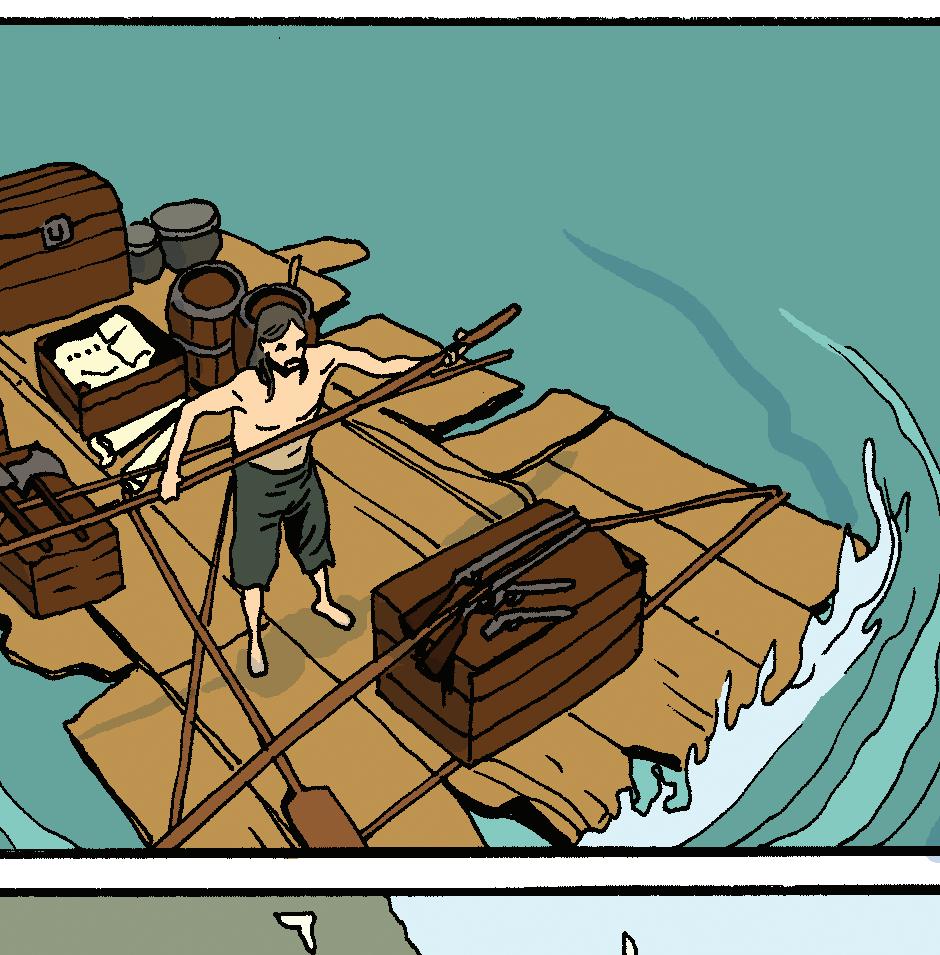
I also took boxes of tools, clothes, guns, swords, gunpowder, and two oars.
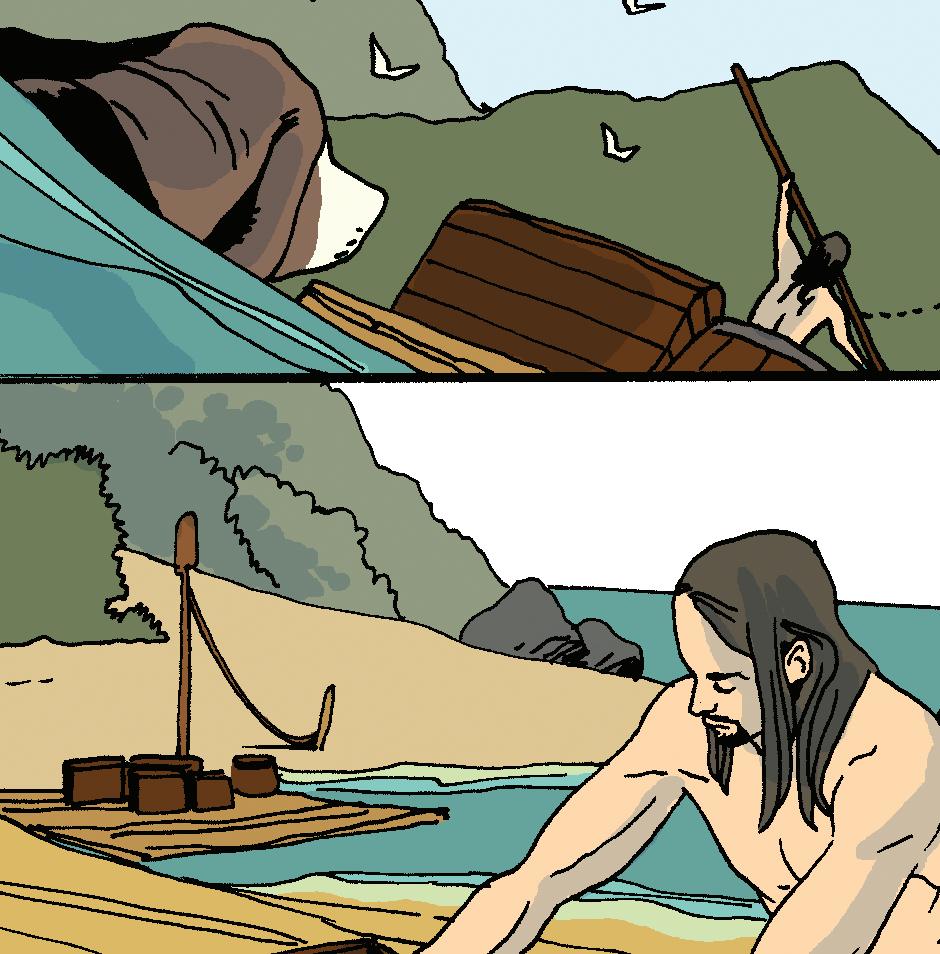


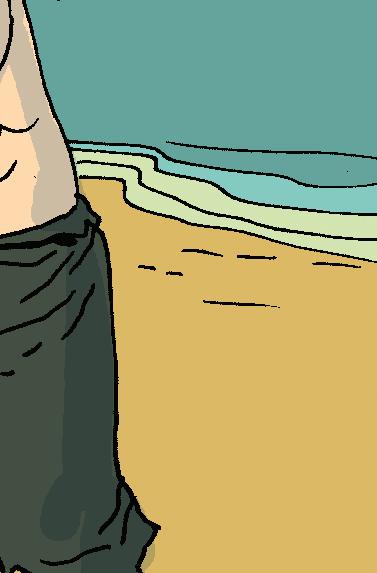
I wanted to find somewhere to sleep, so I climbed a big hill. From here I could see my new home very well.

Later I went back to the ship again. I took more clothes and guns, a sail, and a hammock, back to the shore.
I made a little tent with the sail and put the important things inside it. I put the boxes and pieces of wood around it and went to sleep. I was very tired.
On October 25th there was a storm. The next day I could not see the ship.
This is an island.
It’s gone!
After that I went to the ship every day and brought things to the shore on my raft. I brought all the sails and ropes, more food and rum, some books, scissors, knives, forks, and money.


I began to think about where to build a house.






I found a good place on the north side of a hill. I decided to live there.
I need water and somewhere to sleep. I also need to be safe from animals and people and to see the ocean.








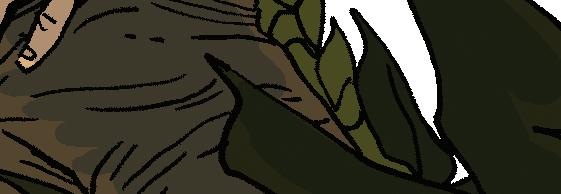



I made a large tent with some sails and put up the hammock. I began making a fence around the tent.



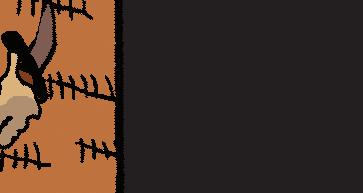

When it did not rain, I went out with my gun. I usually killed birds, but one day I saw some goats, and I killed one.

As a boy, Robinson Crusoe always wanted to go to sea. He makes a number of voyages, but one day his ship is wrecked. Robinson swims to an island, and discovers that he is alone. The island becomes his home for many years. He builds a house and he grows food. But it is a long time before he meets any other people.
StandFor Graded Readers provide a range of engaging reading materials for learners of English. Carefully graded by level, the series includes retellings of great classics, and informative, factual titles.

Level 1 | 380 Headwords
Level 2 | 580 Headwords
Level 3 | 800 Headwords
Level 4 | 1000 Headwords



